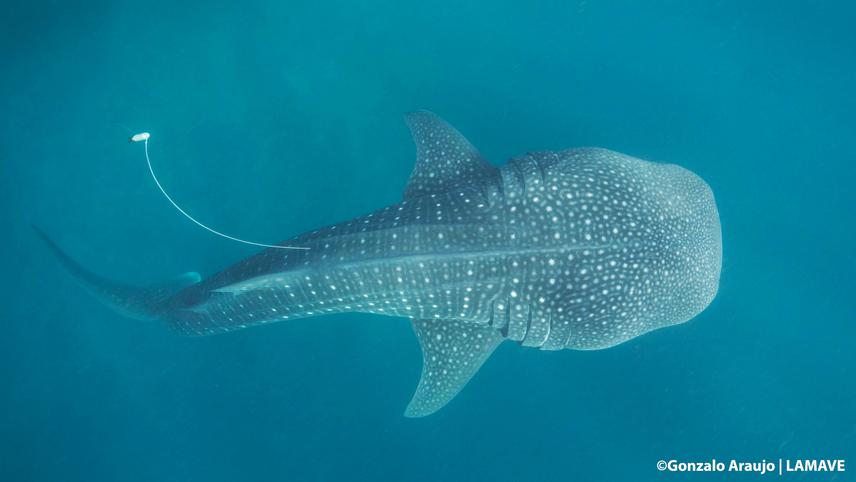Gonzalo Araujo
Other projects
We will continue to assess the population of whale sharks at Panaon Island to better understand their seasonal patterns and habitat use. We will conduct local capacity building and education workshops to improve ecotourism management and species protection.

Following an exploratory trip to the area in May 2012 and the successful identification of whale sharks at Panaon Island, we established a base in Pintuyan in February 2013. Since then, we have been monitoring the population of whale sharks that visit the coastal waters of the municipalities of Pintuyan and San Ricardo in the southernmost tip of Panaon Island, and have identified over 100 individuals to date. We have resighted some of these individuals across the Bohol Sea (220km) in southern Cebu, and as far away as Taiwan (over 1,600km) through the use of photo identification. However, their local habitat use and the reason for their presence at Panaon Island remain unclear. We will collect tissue samples to understand more about their biology and feeding ecology, and deploy temperature-depth recorder tags to identify their local habit use. Through collaboration with the Marine Megafauna Foundation (USA) we will deploy satellite tags on some individuals to shed light on their migration patterns and identify their key habitats.
A local people’s organization (“KASAKA”) has managed the ecotourism activities with whale sharks since 2007. However, there are no national guidelines regulating whale shark interactions, which has led to the development of unregulated tourism in the country. In order to mitigate this issue, we will conduct local capacity building to train KASAKA members and tour operators on sustainable interaction procedures. In addition, we will collect data on whale shark tourism interactions to make science-based recommendations to the local authorities under which the whale shark’s management falls. We will deliver the results of our work through bi-annual reports and presentations to key stakeholders. We will also conduct interactive educational sessions in the local communities to raise ocean awareness, with a particular focus on plastic and other identified threats.
Our active online presence on the project’s website (www.lamave.org) and on social media will help us increase awareness and education on an international level.